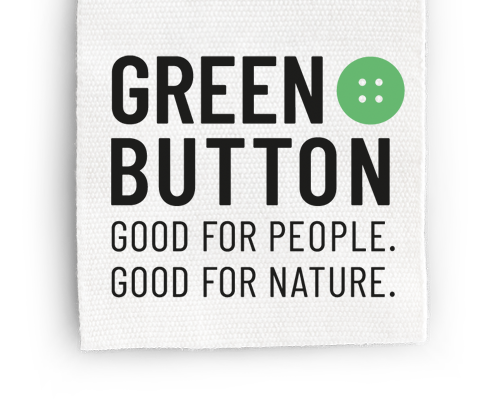Webinar Series: Europe’s Green Transition in the Textile Sector
Upcoming legislation under the EU Green Deal and the EU Textile Strategy
Join the Partnership for Sustainable Textiles and the Green Button during the upcoming six months in our joint webinar series. We want to learn more about the European Green Deal and how it will affect the textile and garment sector and how it will initiate change. Hear from experts and stakeholders about what’s coming and how to best prepare.
The webinar series will include:
- 21st September 23: Corporate Sustainability Due Diligence Directive (CSDDD)
- 23rd October 23: Corporate Sustainability Reporting Directive (CRSD)
- 31st January 24: Ecodesign for Sustainable Products Regulation (ESPR)
- 7th February 24: Waste regulation and Extended Producer Responsibility
- 28th February 24: A future without Modern Slavery (Forced Labour Ban)
- 6st March 24: Tackling greenwashing in the EU
What you can expect from the Webinar Series
Under the umbrella of the European Green Deal, the EU Textile Strategy sets out a vision and concrete actions to ensure that: “By 2030, textile products placed on the EU market are long lived and recyclable, to a great extent made of recycled fibres, free of hazardous substances and produced in respect of social rights and the environment.”
As part of these roadmaps, the EU Commission has put forward several far-reaching legislative initiatives. Each is at a different stage of political negotiation. However, many of them are expected to come into force between 2025 and 2026. Introducing far-reaching new design requirements, greenwashing regulation, rules to prevent overproduction and overconsumption, and rules to handle textile waste more responsibly, these initiatives will completely overhaul the rules for the production, consumption, sale, and disposal of textiles.
In our joint webinar series, you will get:
- an introduction to the wider EU policy landscape and how upcoming legislation relates to international obligations
- deep dives into specific EU regulatory initiatives
- a better understanding of the specific regulatory initiatives that will transform the textile and apparel sector in the coming years and how these initiatives are likely to impact companies and global supply chains
- an update on the status of the different legislative proposals
Register here.
The Webinar Series included the following events
Past events
21.09.2023, 10.00am - 12.00pm CEST/3.00pm – 5.00pm IST
Upcoming EU-legislation, the textile sector and a deep dive into the Corporate Sustainability Due Diligence Directive (CSDDD)
Europe's green transition: Regulatory initiatives under the EU Textile Strategy and the EU Green Deal will change the way the textile sector operates. This session will set the scene for the upcoming webinars, provide context on policy developments, and delve into one of the initiatives at the heart of the Green Transition: The Corporate Sustainability Due Diligence Directive (CSDDD) and its implications for the textile sector, both for brands and retailers as well as for suppliers.
Experts
Jennifer Schappert, Partner & Responsible Business Conduct Expert, Due Diligence Design
Julius Dahmen, Lawyer & Environmental, Social and Governance Expert, Taylor Wessing
Kim van der Weerd, Intelligence Director & Advocate of equal partnerships in supply chains, Transformers Foundation
23.10.2023, 10.00am – 11:30am CEST/1.30pm – 3.00pm IST
New reporting requirements and standards: The Corporate Sustainability Reporting Directive
With the Corporate Sustainability Reporting Directive (CSRD) on the horizon, companies are preparing for the new reporting standard. The new requirements will allow for consistent and comparable reporting that will help both companies to unify their reporting obligations and the public to easily understand and compare sustainability efforts. The webinar will focus on the perspectives of brands, reporting experts and suppliers, we will also critically examine the potential pitfalls of burden sharing between brands, retailers, and suppliers.
Experts
Dr. Marlen Vesper-Gräske, Principal Associate & Sustainability Expert, Freshfields Bruckhaus Deringer
Gerhard Grimm, Lead Transparency and Reporting, C&A
Chantal Gräff, Senior Consultant Sustainability Reporting & ESG Communication, Stakeholder Reporting GmbH
31.01.2024, 10.00am – 11.00am CET / 2.30pm – 4.00pm IST In Cooperation with GIZ FABRIC
Ecodesign for Sustainable Products Regulation: A game-changer for the textile sector?
The proposal for a new Ecodesign for Sustainable Products Regulation (ESPR) is at the heart of the EU’s Green Deal and has been termed a game changer for the textile sector and its green transition. The proposal establishes a framework for setting ecodesign requirements for specific product groups, including textiles, to improve their circularity, energy performance and other aspects of environmental sustainability. The Digital Product Passport for textiles will play a key role in this regulation, increasing transparency and unlocking circularity potential. The webinar will provide an overview of the scope of the proposed regulation and requirements for brands, suppliers, and other stakeholders in the sector, as well as give an update on the status of the policy proposal.
Experts
Tim Becker, Senior Legal Advisor, REACHLaw
Roman Houlbreque, Director Partnerships, retraced
Gabrielle Shiner-Hill, Co-Founder, bureau_555
07.02.2024 10.00am – 11.30am CET / 2.30pm – 4.00pm IST In Cooperation with GIZ FABRIC
Stricter waste regulation and Extended Producer Responsibility for textiles
The new Waste Shipment Regulation (WSR) and the Waste Framework Directive (WFD) will change the way the EU handles textile waste. The proposed policies on waste aim to make waste management more efficient in the EU, treating waste as a resource and moving towards a circular economy. While the Waste Shipment Regulation aims to ensure that the EU does no longer "export its waste problems" to third countries, the core of the proposal for a new Waste Framework Directive is the introduction of an Extended Producer Responsibility (EPR) for textiles. This session will provide an overview of the current state and content of the proposals and discuss their potential impact for brands, retailers, and suppliers alike.
Experts
Marie-Jeanne Gaertner, Project and Advocacy Officer, RReuse
Beatriz Fernandez, Associate Programme Management Officer, UN Environment Programme
Edwina Huang, Co-Founder, Phoenxt
28.02.2024 10.00am – 11.30am CET / 2.30pm – 4.00pm IST In Cooperation with GIZ FABRIC
A future without Modern Slavery: EU-legislation and upcoming requirements for the textile sector
With the European Commission's proposal for a regulation to prohibit products made with forced labour on the EU market, the EU plans to ban all products made under such conditions for domestic consumption, export and import. The regulation will have wide-ranging impact as it covers all companies and products, regardless of size or sector in which they operate. In this session we will hence look at the potential impact of this forced labour ban on the textile sector and how companies can begin to prepare for the upcoming obligations in their supply chains.
Register here.
Experts
Libby Annat, Partner and Co-Founder at Due Diligence Design
Clemence Aron, Programme Director, Mekong Club
Anna Cavazzini, Member of the European Parliament, The Greens/EFA
06.03.2024 10.00am – 11.30am CET / 2.30pm – 4.00pm IST
Tackling greenwashing: The Directive to Empower Consumers for the Green Transition and the Green Claims Directive
To combat greenwashing, the Directive aims to ensure that green claims are reliable and verifiable across the EU, enabling consumers to make informed and sustainable purchasing decisions. It targets, among others, generic environmental claims such as “eco-friendly”, “green” or “climate neutral”. The session will examine the proposed Directive in much more detail and discuss its implications for stakeholders in the textile sector.
Register here.
Experts
Miriam Thiemann, Policy Officer for Sustainable Consumption at the European Environmental Bureau (EEB)
Robert Suter, Manager for Stakeholder Engagement at ISEAL Alliance
Alexander Sustal & Pascal Göpner, Redeker Sellner Dahs

